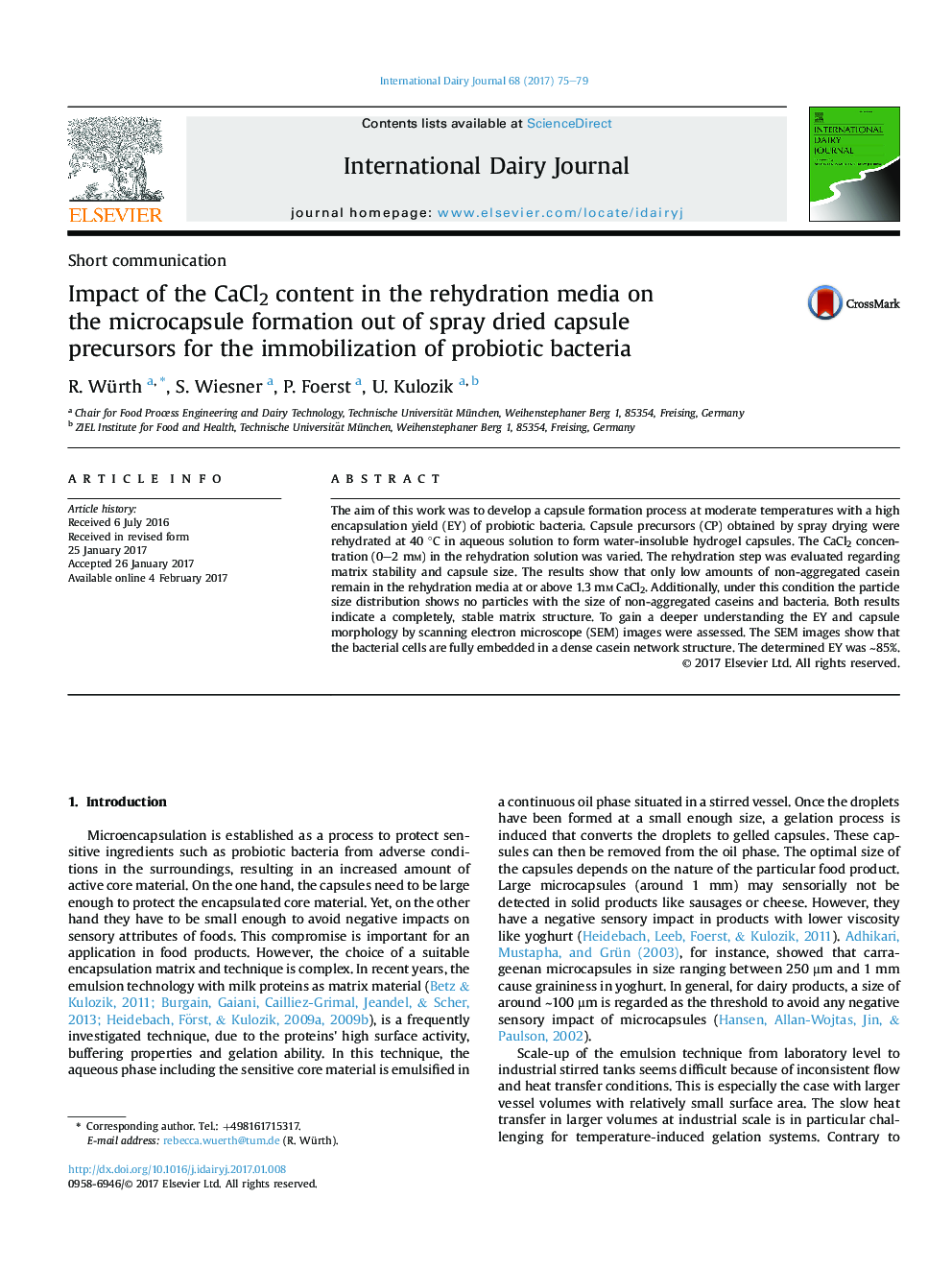| Article ID | Journal | Published Year | Pages | File Type |
|---|---|---|---|---|
| 5541185 | International Dairy Journal | 2017 | 5 Pages |
Abstract
The aim of this work was to develop a capsule formation process at moderate temperatures with a high encapsulation yield (EY) of probiotic bacteria. Capsule precursors (CP) obtained by spray drying were rehydrated at 40 °C in aqueous solution to form water-insoluble hydrogel capsules. The CaCl2 concentration (0-2 mm) in the rehydration solution was varied. The rehydration step was evaluated regarding matrix stability and capsule size. The results show that only low amounts of non-aggregated casein remain in the rehydration media at or above 1.3 mm CaCl2. Additionally, under this condition the particle size distribution shows no particles with the size of non-aggregated caseins and bacteria. Both results indicate a completely, stable matrix structure. To gain a deeper understanding the EY and capsule morphology by scanning electron microscope (SEM) images were assessed. The SEM images show that the bacterial cells are fully embedded in a dense casein network structure. The determined EY was â¼85%.
Related Topics
Life Sciences
Agricultural and Biological Sciences
Food Science
Authors
R. Würth, S. Wiesner, P. Foerst, U. Kulozik,
